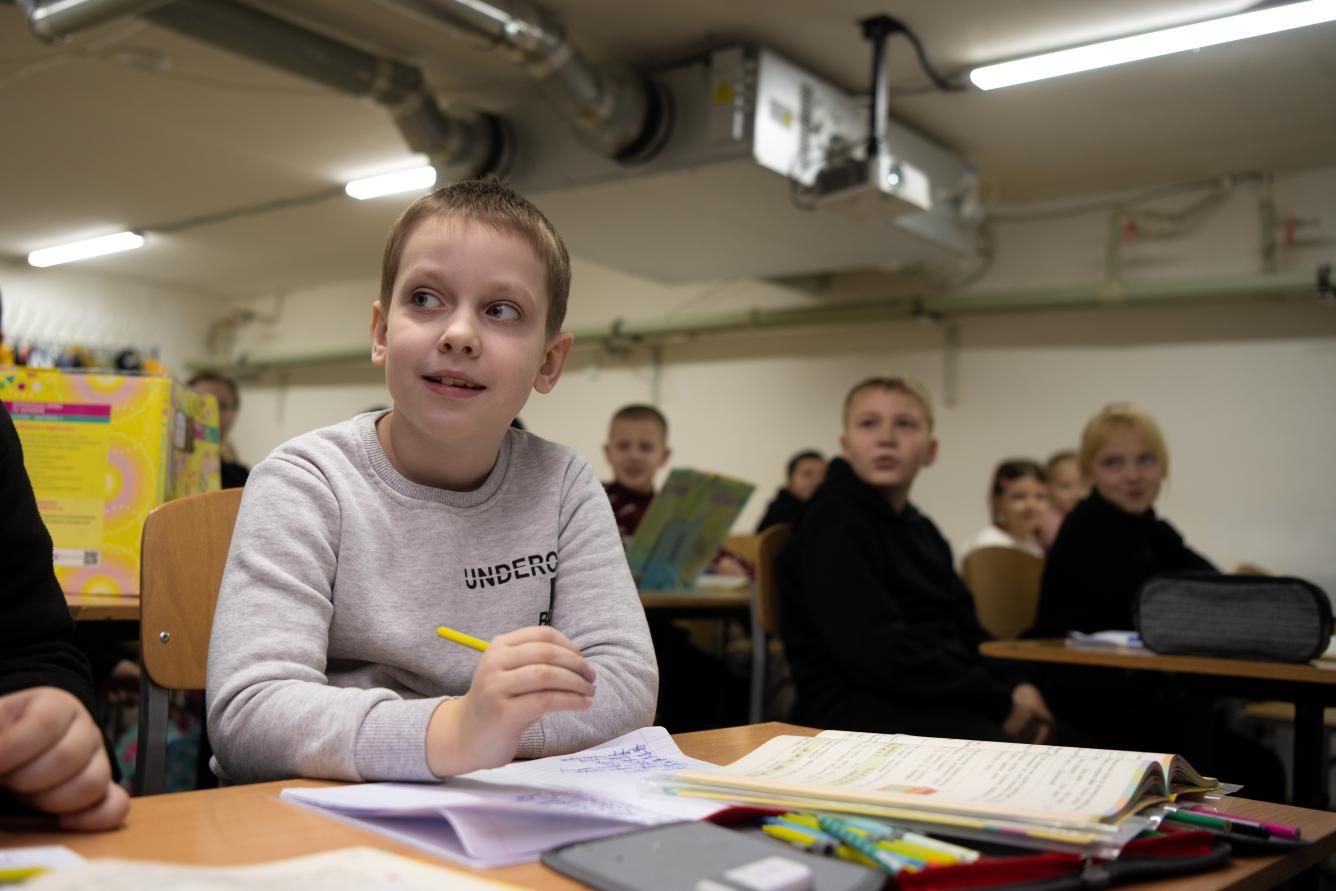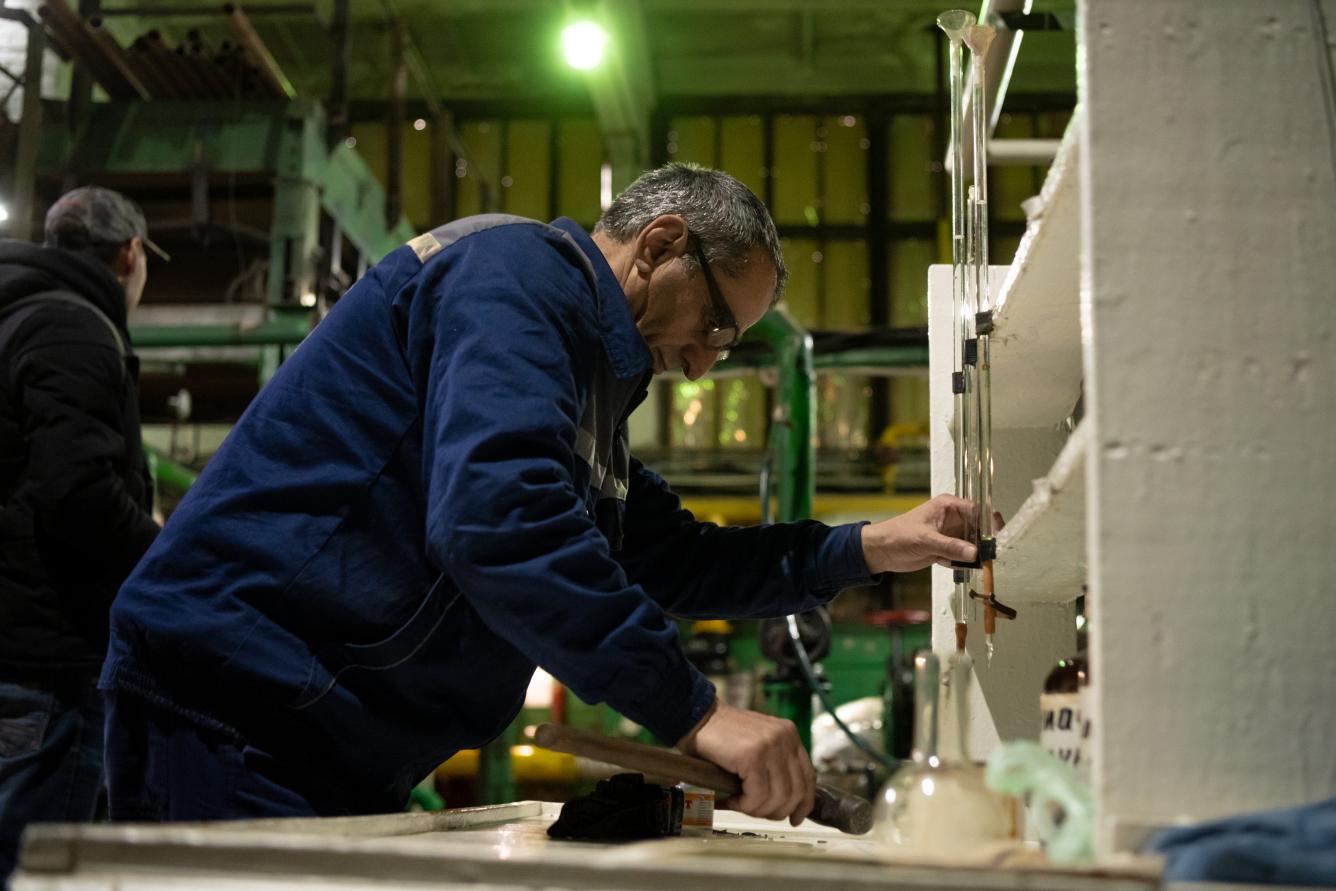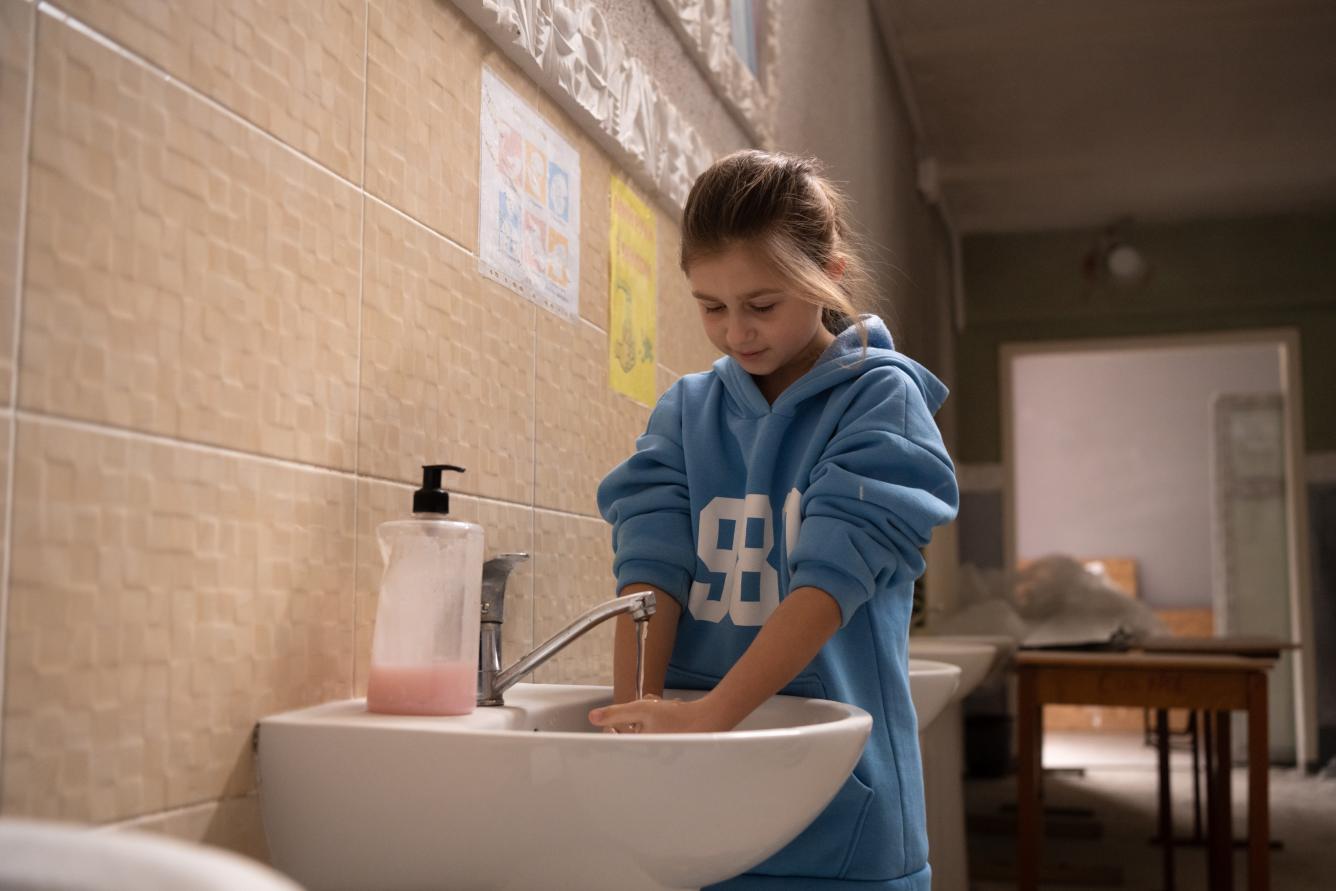Keeping families warmer in Pavlohrad this winter
Although ten-year-old Serhiy, a fourth-grader from Pavlohrad in Ukraine, has returned to school, he spends most of his time in the bomb shelter.
“Last year I didn't like sitting at home all the time in front of the computer. At school, at least you can play with your classmates and get distracted, even if it's in the basement,” says Serhiy.
Down in the shelter, where a classroom has been set up, there is light, heating and hot water. While the children can still hear the school bell, the explosions outside are barely audible.
Here, the younger students study in shifts, after the school was damaged by shelling, shattering all of the windows. Returning to school is a relief for many of them – following the outbreak of the war in Ukraine, the children had no choice but to study online from home, due to shelling and infrastructure disruptions, such as power, heating and water outages.
But while the shelter has helped the younger children return to in-person learning, the older children at this school must continue to study remotely.
"I want to go to school,” says Eva, 10, a fourth grader at the school. “I memorize everything much better when I’m here at school. And here is where my friends are.”

“Winter was particularly tough”
Pavlohrad, in Ukraine’s Dnipropetrovsk region, has become a transit centre for people fleeing the fighting in the Donetsk region. The city has 100,000 local residents and hosts around 20,000 displaced people, nearly 4,000 of whom are children, who attend local schools and kindergartens.
The city endures regular missile attacks, which regularly damage civilian infrastructure. Pavlohrad has been left without heating and water several times.
Volodymyr Perelyotov, Chief Engineer at Pavlohrad’s heating utility company, says that the utility company relies on old, worn-out equipment. Modernization is slow because the enterprise lacks funds.
"We were able to start the heating season this year thanks to UNICEF's support," says Volodymyr.

“This reduced heat loss by 25 per cent”
UNICEF is implementing a large-scale project in Pavlohrad to restore heating and water infrastructure. The work includes repairing equipment damaged by shelling, replacing worn-out assets and introducing modern technologies.
"Together with UNICEF, we replaced old insulation materials with modern polyurethane foam insulation in several districts of the city," says Volodymyr. This reduced heat loss by 25 per cent.
UNICEF has also supported the installation of modern water purification systems in 11 Pavlohrad boiler rooms. This will make the water hotter and reduce damage to boilers and heat network equipment.
Volodymyr explains that the new systems are automated and do not require human intervention, unlike the previous ones, which partially mitigates staff shortage.
In addition, the city received a cogeneration unit, which will form a large boiler house serving 5,000 subscribers and making one of the city's communities more energy independent. This special green energy equipment provided by UNICEF is expected to increase the production of thermal and electrical energy in Pavlohrad.

“This will reduce water losses”
"Water supply in Pavlohrad is stable now,” says Maryna Artemenko, head of the production and technical department at Pavlohrad’s water utility company. “But due to the high wear and tear of the networks, which are 255 kilometres long, accidents occur almost daily – more than 300 per year. This, of course, makes water supply to the city more complicated.”
However, she says, there have been no long interruptions in water supply recently – a maximum of 6 to 7 hours.
UNICEF helps the water utility company to ensure a stable water supply to schools, hospitals and homes by providing materials for major network repairs, as well as new equipment for water sample analysis and disinfection.
"Currently, this is more than two kilometres of pipes that we will replace,” says Maryna. “This will reduce water losses and the number of accidents in the most problematic areas. We have also received as much as 55 tons of salt. This is used to produce a disinfectant for drinking water. We have a stock sufficient for a year.”
